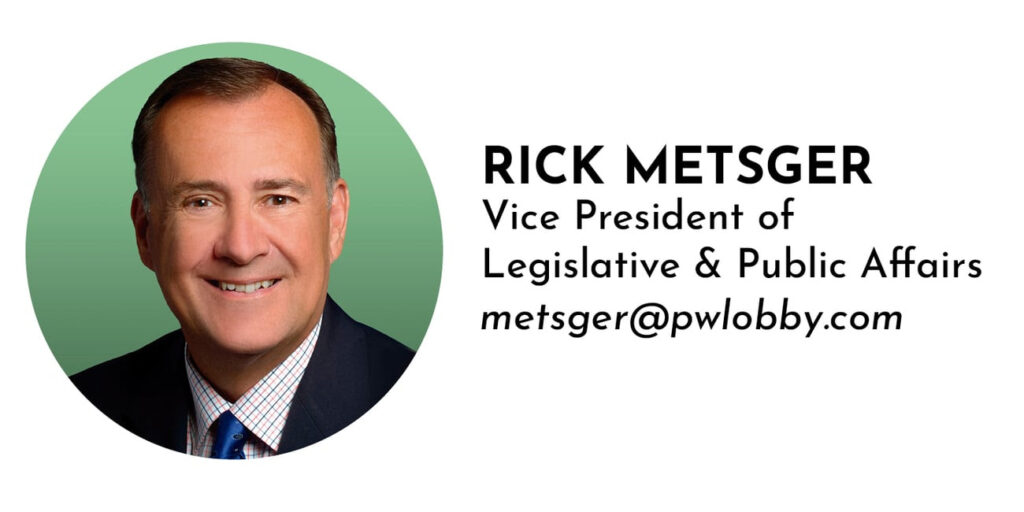It is compromise that prevents each set of reformers from crushing the group at the other end of the political spectrum.”
― John Fitzgerald Kennedy, Profiles in Courage
NOTE from Kevin, the Wilsonville Chamber CEO: This is a superbly written article that makes a lot of sense. I hope you read it and think about how we can all work together, regardless of our party affiliation, to make our city, our state and our country even better.
Throughout our history there have been legislative issues that have deeply divided the Oregon assembly. Should our Democratic Republic survive, there will be many more. Democracy survives only by engagement, not withdrawal.
It is illustrative to look back at this very month, exactly 70 years ago. The divisive issue was not abortion or gender-affirming medical procedures as articulated in today’s HB 2002. It was segregation in 1953. People of color were not accepted in many places of so-called ‘public accommodation’ in Oregon. This Northwest state was firmly rooted in the South. The rhetoric was as passionate and righteous as anything today. Opponents of desegregation claimed a bill in the Legislature was a ”constitutional violation of their freedom of choice.” Desegregation would amount to forced associations with people against their will. There was moral and religious outrage on both sides of the debate. Rev. Elbert Riddick of the Church of the Good Shepherd in Portland said the legislation forced upon citizens “unwanted companionship” and “compulsory equality.”
There wasn’t a walkout then. Couldn’t happen. It was one-party rule like nothing we experience today. Republicans ran everything. Had there been an Endangered Species Act, Democrats would have made the list. The Oregon Senate consisted of 26 Republicans, only four Democrats.
If those four Democrats were to withhold their participation nobody would have missed them. The political problem 70 years ago was that the party in power could not walk away from themselves. They had to set aside personal animosities and grievances, make their best arguments, issue their most passionate pleas, and then make a decision that many in their own party would despise regardless of the outcome.
In the face of intense opposition in his own party, a young state representative, Republican Mark Hatfield, stood against the angry tide washing over the Capitol, offered grace over anger, and the historic Civil Rights Bill of 1953 became law.
The issue that threatens our government process is rooted far deeper than HB 2002. If not this bill, then it will be the next and then the one after that. HB 2002 is not the source of the problem, it is a reflection of something much deeper that has been lost in the Senate. Trust and respect. It has been supplanted with political pugilism. A commitment to win at all costs, even if that cost is the very institution of democracy itself.
Without trust and respect no negotiation is possible. Mario Puzo, author of “The Godfather” analyzed it well.
“Never hate your enemies—it affects your judgement.”
There are 30 senators in Oregon. Each one, I genuinely believe, is an honest, dedicated person of strong convictions. The process needs that. Groupthink is the enemy of democracy, not the standard bearer. Each one of them, Republican and Democrat, can choose to be a leader.
It would be a suitable time to dust off that old copy of “Profiles in Courage” and re-read the story of Sam Houston of Texas, who despite intense opposition by his own supporters put the Union ahead of rebellion, and Edmund G. Ross of Kansas, whose lone vote saved the American presidency.
As Kennedy noted years ago: “There are few if any issues where all the truth and all the right and all the angels are on one side.”
Positions may be elected, but leaders emerge, as Kennedy noted, when time and circumstance demand it. That time, that circumstance has arrived in Oregon. Currently, there are the minimum majority of 16 Democrats in the Senate chamber. Each and every one of them has the power, in their vote, to stand and demand a new approach.
Who, if any, among them will step forward? Only trust and respect will lead the Senate out of the abyss. Neither virtue can be demanded. They can only be earned. Only then will grace lead them home.
Written by Rick Metsger, Vice President of Legislative & Public Affairs, at https://thepoliticalcenter.org


